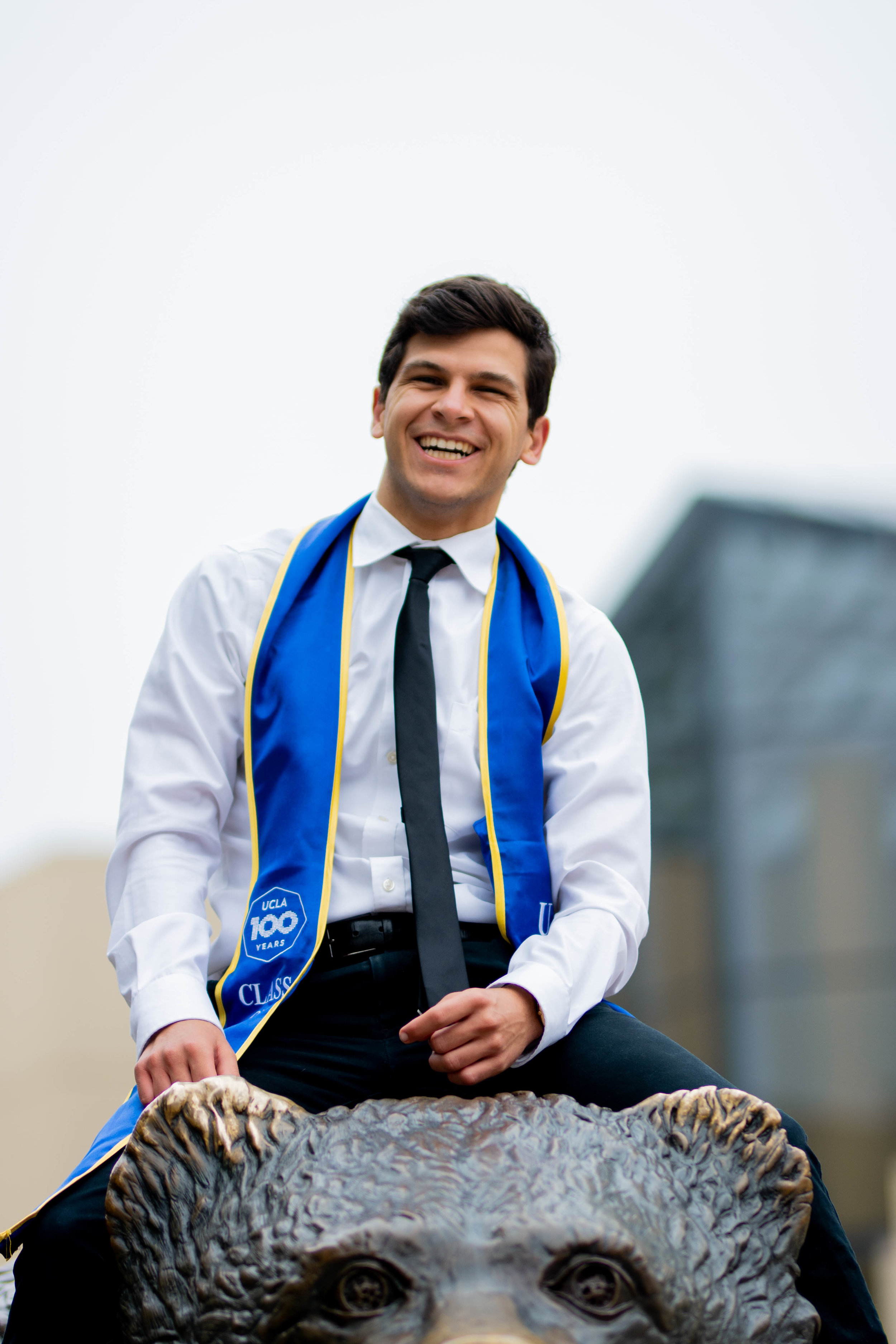Jacob N. is as local as they come. After growing up in Malibu and graduating from Malibu High, he went to UCLA and studied psychobiology, graduating in 2019. Now, he’s working as an assistant in a treatment clinic while preparing for medical school and, of course, bringing his math/science skills and mentoring insight to the students at PCH Tutors. He’s passionate about promoting mental health and fascinated by the connection between the brain and human behavior.
How did you discover you had a knack for tutoring and mentorship?
I started tutoring a family friend in algebra during my senior year of high school, and I ended up really loving it. Even before that, I was teaching my sister calculus. Learning calculus for me was cool but I couldn’t do much with it besides show off so I started helping my sister with her calculus homework. I liked taking basic concepts and being able to think through how I learned them - breaking down high levels of math and communicating it.
During my freshman year at UCLA, I joined a tutoring organization helping students on campus, then CalTeach gave me the opportunity to lead a classroom of second graders. I taught a physics and biology class, which was a great opportunity to focus not just on the one-on-one setting but also in the classroom. I also wanted to develop more public speaking skills, so it helped with that.
What was it like teaching physics to second graders?!
It was all about making it real-world. We studied how friction works, and it was a completely hands-on class. The lab was based on the activity of getting a brick over cylinders. First we tried to drag the brick across the floor, then we put trundles down and tried it. Afterwards, we discussed which was easier and I tied it to the real world: this is how the Egyptians probably built the pyramids: physics is how humans could possibly drag huge bricks across the sand.
Did the experience spark your interest in teaching and tutoring?
It did. I’d like to become a psychiatrist, but spend my career in more academic medicine, like being a professor at a medical school teaching residents or other students.
When I was at UCLA I became involved in health clubs on campus and I was interested in shaping pre-med culture to be more collaborative. I rose to leadership positions and mentored other pre-med students. We held interview workshops, resume building days, etc. Being able to reach out to fellow undergrads who are also interested in the medical field and teach them what they need to know if they’re interested in med school - and the mentorship aspect - really peaked my interest.
Why are you passionate about tutoring and mentorship?
I’m really passionate about using my own failures to help others. For example, I didn’t do super well on the SAT the first time I took it, partially because I was so anxious. Then I retook it and landed around the 98th percentile. It’s okay to fail, because you can find out what worked and didn’t work.
How has working with PCH Tutors impacted you?
I started with PCH in March of 2019. Once I graduated I was reflecting, “What did I do in college that I really loved?” The first thing I thought of was tutoring students and mentoring others. PCH Tutors really emphasized the dialectic teaching method, conversational learning, and student-teacher relationships as a way to help kids get through tough academic challenges.
What is your favorite part of working with PCH Tutors?
I enjoy reaching students who maybe don’t learn in super traditional ways. For example, teaching students who aren’t interested in math or who don’t have that intuitive interest and don’t see the point of it. Once, a student and I were learning about cycles and sine waves. You don’t think of that as inherently interesting, but think of it as the way stock markets work: rises and runs. The function right now doesn’t mean much to you, but in the future if you study finance, or even want to build a savings and invest, you might use that.
Have you benefited from having mentors or tutors?
I’ve definitely had my own great tutors along the way. From my own mentors I’ve learned that practice is incredibly important. It’s not so much showing a student how it’s done but asking them how would they do that. My tutors had me do it on my own, then corrected me or showed me the right way. That influenced my method, which is asking students what they think is the answer and why. After they think it through and try to answer it, build off where they already are.
What’s your tutoring strategy?
My go-to strategy is to make it interesting. You can usually find maybe one smaller concept that a student will show an interest in and tie more of the material into that. One of my students had difficulty with classifying numbers - real, irrational, imaginary, etc. So what is a rational number? I gave him an example: anything you can quantify, like 16 oz of water, is a rational number. Making things concrete for students and using real-world examples is helpful, as is tapping into students’ intuitive understanding of math by asking them what they already know, then expanding it.
What else do you like to do in your free time?
I’m passionate about personal fitness - I believe fitness keeps you firm mentally; I work out every day. I love playing basketball and love to skateboard.
I’m also passionate about promoting mental well-being. I always encourage students to be honest about their own needs and with themselves and I advocate for what they need.
Have you read anything lately you recommend?
I love nonfiction - things like Malcolm Gladwell’s The Tipping Point, which is how being an expert is all about practice and not as much about being a professional. Practicing a lot is what makes someone professional.



